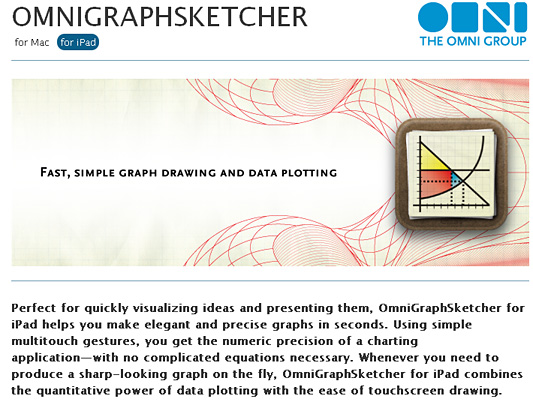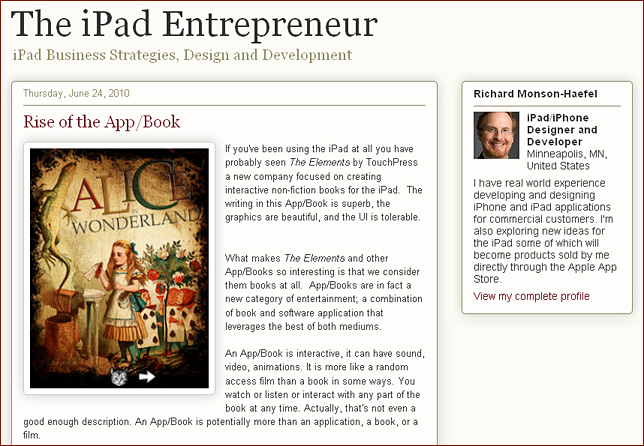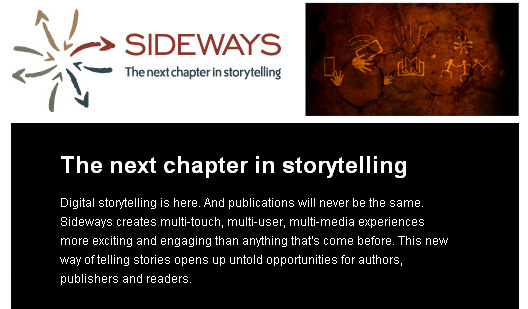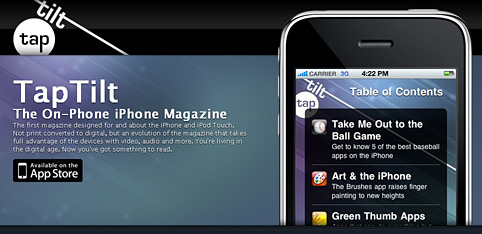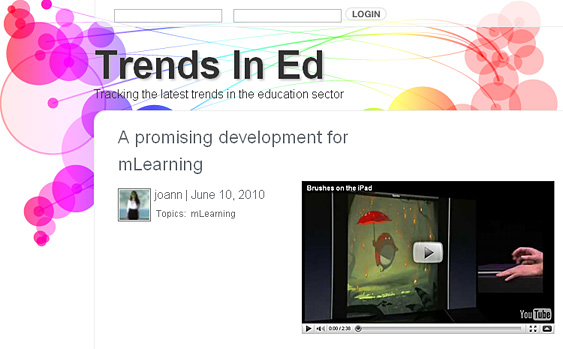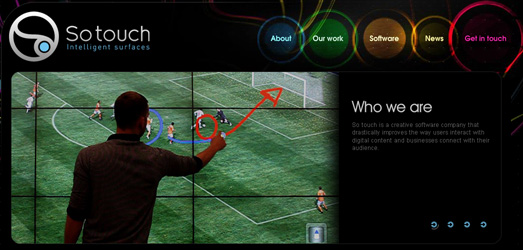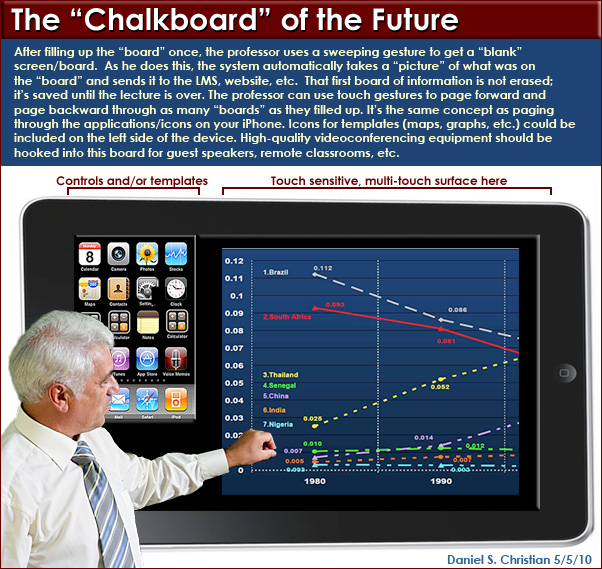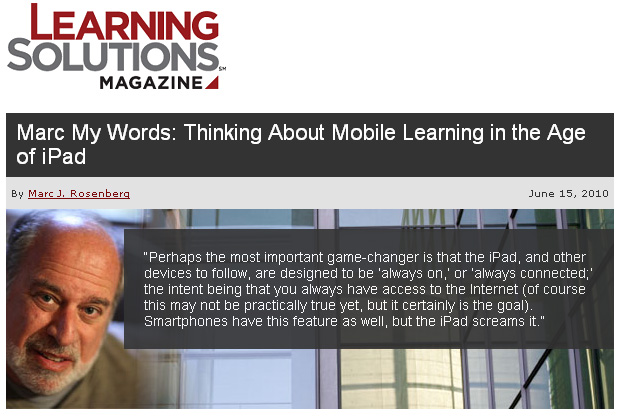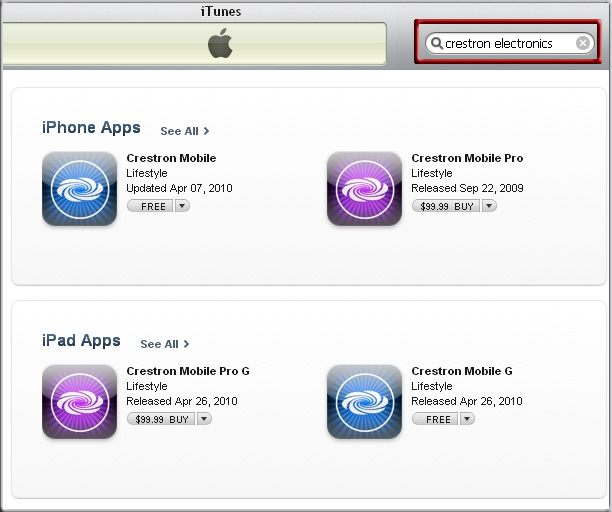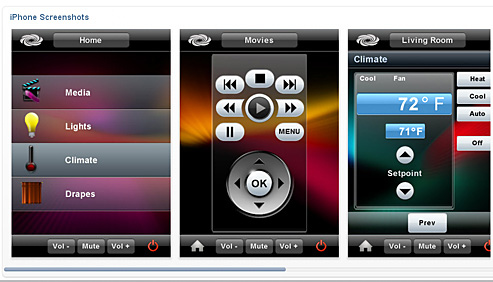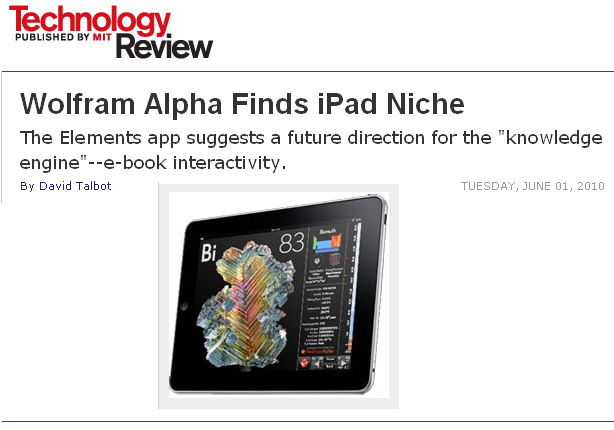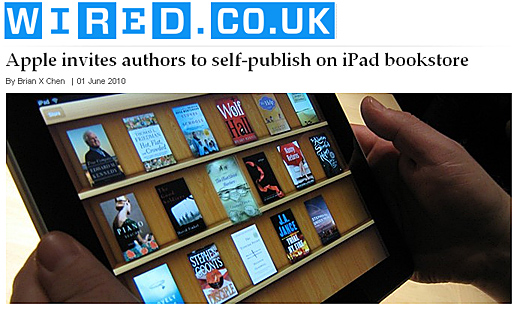App/Books are in fact a new category of entertainment; a combination of book and software application that leverages the best of both mediums. An App/Book is interactive, it can have sound, video, animations. It is more like a random access film than a book in some ways. You watch or listen or interact with any part of the book at any time. Actually, that’s not even a good enough description. An App/Book is potentially more than an application, a book, or a film.
About Sideways
Sideways, the publisher of experimental app magazines Sideways and TapTilt, transforms print into immersive experiences on digital tablets and mobile devices. Leveraging unique multi-media capabilities, Sideways goes beyond ebook functionality, changing storytelling and the way we consume books and magazines. Developing original content with forward-thinking publishers and authors, the company’s publishing platform augments text with rich media, adds multiple levels of reference, and enhances reading with mobile features and social media. Sideways takes advantage of interactivity to enrich both the solitary and social experience of reading – from fiction and non-fiction to “how to” and guides. Additionally, Sideways is the creator of Author App, a mobile application for authors designed to build their brands, engage their fans and expand their presence. Based in Cleveland, Sideways was founded in 2010 by Charles Stack and Eliza Wing. Stack started the first online bookstore in 1992 – Books.com – which was acquired by Barnes and Noble. Wing was formerly the CEO of Cleveland.com and editor at Rolling Stone, Books.com, and New York Woman. For more information, visit www.sideways.com.
Also see:
From DSC:
Do you hear the roar of the engines? (i.e. the pace of technological innovation is exploding and the racetrack is full of lightning-fast cars.)
If educational publishers would publish content to be iPad ready, can you imagine the power of this type of an interface/”chalkboard of the future” in a professor’s hands? He/she could:
- Intuitively and efficiently locate an item
- Drag it over to the main viewing are
- Enlarge a table of data and then annotate it
- Quickly shrink a graphic and move it to the side of the screen after discussing it
- Annotate a photo or a website
- Send the captured image of what he/she had been displaying and working on to devices that can “hear” that signal
- Etc. etc. etc.

Crestron iPhone app highlighted in iTunes App Store — from eSchoolNews.com
Rockleigh, NJ, June 4, 2010 – Crestron announced that its popular iPhone app is showcased today in the ‘Apps to Control Your World’ feature section on the iTunes App Store. Crestron Mobile Pro harnesses the power of the 3G network and Crestron control systems to stay connected to the home or office from anywhere in the world. Crestron Mobile Pro puts a professional-looking Crestron touchpanel user interface right on the popular Apple iPhone or iPod touch, enabling a wide array of customizable capability to control audio/video, lights, climate, shades, and security in the home or office.
The best PDF reader apps for your iPad — from digital inspiration
Last May, the talk of the search world was Wolfram Alpha, the online engine that provides graphically presented answers to computationally oriented questions tapping myriad math, science, and other data sets. But by April 2010, Wolfram Alpha’s traffic hovered below the numbers achieved in the launch month of May 2009. Though this does not capture use by third-party applications–including Microsoft’s Bing search engine–Wolfram Alpha hasn’t emerged as a notable search destination.
But the emergence of e-books provides Alpha with a new outlet–as a ready-made supplier of interactive graphics, plots, charts, and real-time data. These features can be incorporated within publications developed for Apple’s iPad and other devices. “Deeper information becomes available by way of tapping,” (emphasis DSC) says Theodore Gray, cofounder of Wolfram Research.
The first example is now out: a Wolfram/Alpha app for The Elements, a book Gray wrote on the periodic table. The paper version of the book is dominated by glossy photos of elements and products made from them (Pepto-Bismol, for example, uses bismuth). The version developed for the iPad, however, is chock-full of on-screen buttons that lead to Wolfram’s online computational engine and data sets.
Clearly, the concept will make sense for some kinds of books more than others, says Jared Spool, CEO of User Interface Engineering, a North Andover, MA-based consulting firm. “It makes a lot of sense for a lot of college textbooks to go in this direction, (emphasis DSC) but I’m not sure that a detective novel has a lot to offer there,” he says. Delivering such interactivity is a likely new direction for Wikipedia and search engines and many other sources beyond Wolfram Alpha, he points out.
MapProjector – Maps from your iPad to your TV or Projector — from the NMC
IIT to give all freshmen Apple iPads — from Educational Technology and WLS-TV Chicago
Beginning this fall, first year students at the Illinois Institute of Technology will receive an Apple iPad. IIT envisions that students will take the portable computer tablet to class to take notes, read books and surf the Internet. The school explains faculty who teach engineering and computer science can also build applications specific to their courses. The freebee will cost the school about $250,000 dollars.
http://abclocal.go.com/wls/story?section=news/local&id=7448921
Seton Hill to Offer iPads to Full-Time Students — from The Chronicle by Jill Laster
Seton Hill University, a liberal-arts institution in Pennsylvania with more than 2,100 students, announced a program on Tuesday that offers an iPad to every full-time student. Distribution will begin in the fall. Incoming freshmen will also receive a 13-inch MacBook laptop, which Seton Hill will replaced after two years; current sophomores, juniors, and seniors can opt into that program.
Should colleges start giving Apple’s iPad to students? — from USAToday.com by Steve Kolowich, Inside Higher Ed
The iPad has landed. But should campuses be throwing it a welcome party? At least two are. Seton Hill University, a Roman Catholic institution in Pennsylvania, announced this week that it would be giving Apple’s new computing tablet to each of its 2,000-odd full-time students when they arrive on campus in the fall. George Fox University, a Christian institution in Oregon, will expand its annual laptop giveaway to first-year students to offer students a choice between a Macbook and an iPad. The year after that, there will be no more choice: Everybody will get iPads.
Adobe rolls out iPad-focused magazine publishing tools — from arstechnica.com by Jacqui Cheng
Also see:
Advancing the future of digital publishing
Adobe is building on the foundation of Adobe® Creative Suite® 5 and Omniture® technologies to deliver an open, comprehensive Digital Publishing Platform. This innovative platform consists of applications, technologies, and services that allow publishers to cost effectively author, produce, and distribute groundbreaking content to the broadest possible audience on a wide variety of digital devices. With this platform, Adobe is helping publishers and advertisers revolutionize how they create and deliver digital content, and how their audiences consume it.
NOTE:
Content plus experience for multiple screens
Publishers around the world are striving to embrace the digital age — to build distinctive brands, develop sustainable business strategies, and achieve greater profitability. They’re looking for innovative, cost-effective ways to design and deliver content to fragmented audiences on an ever-expanding array of smartphones, tablets, e-readers, and other devices.
Audiences today want to engage with content wherever they are, using their preferred devices. And they seek immersion in compelling, media-rich experiences that are optimally designed and delivered. Content plus experience is now king (emphasis DSC).
From DSC:
Read that last paragraph again — this is our future (perhaps even current?) student.









